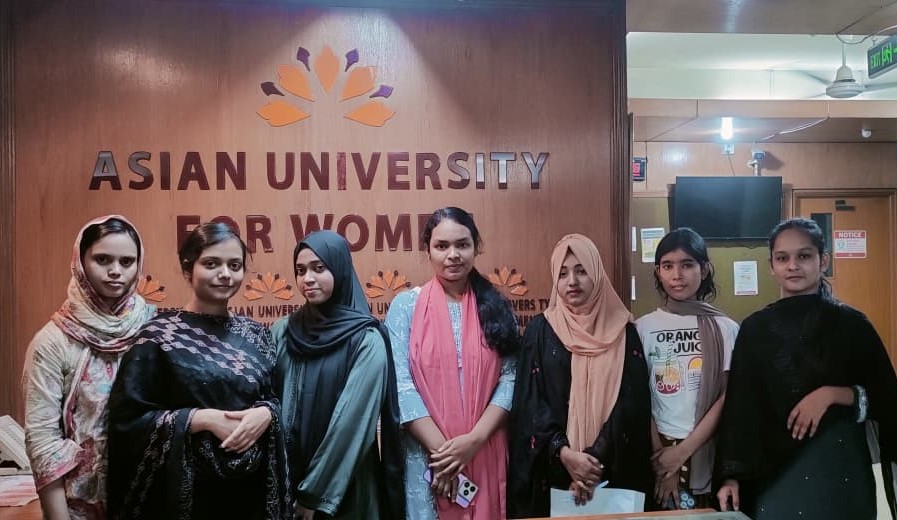The word “terrorism” is politically loaded and emotionally charged and refers normally to an act designed to cause terror.
By Muhammad Zamir
The unfortunate terrorist killings since the end of September have cast a pall of gloom over Dhaka and the rest of Bangladesh. On 28th September came the planned killing of Italian Cesare Tavella, working in Bangladesh to improve food security. He was accosted and shot dead by criminals while jogging in the Gulshan neighborhood in northern Dhaka, home to Diplomats and Foreign Embassies. Next, on 3rd October, came the regrettable and ill-fated murder of Japanese agronomist Hoshi Kunio, staying alone near a farm in Rangpur. After that we had another murder, carefully carried out by professional killers in the outer fringe of Dhaka city. The former PDB Chairman Khijir Khan was killed in his residence. There was also the pre-meditated attack on Father Luke Sarker, a Baptist Christian priest living in Pabna. Fortunately he survived.
Search for International Terrorist Entities (S.I.T.E), an American based Web-site, run by Rita Katz and Josh Devon, with Israeli connections immediately blamed the incidents related to the two foreigners on the ISIS. However, when contacted by the DB of Bangladesh Police, they refused to reveal their source of information that prompted them to accuse ISIS of these murders. In the meantime, the absence of credible information and proof has led the Bangladesh authorities to dent the presence of ISIS in this country. Instead the torch light is focusing on terrorist elements from fundamentalist parties who were associated with killing and arson earlier this year.
Some within the diplomatic corps claimed that information regarding the possibility of such attacks on foreigners had been passed on to the relevant agencies responsible for maintaining law and order and providing protection to foreigners living in Bangladesh. They also rued the fact that such actionable intelligence had not been pursued with necessary care. This has been denied by the law enforcement agencies.
There was going to be a meeting of the Buyers Forum in Dhaka related to the garment industry. That has been postponed. This has also been true with regard to the visit of the Australian cricket team to Bangladesh. The visit to Dhaka of a British State Minister was also postponed. We have also seen in the past few days reports of over 40 foreigners, majority of whom were from Spain (working for Isolux Ingenietia) leaving Bangladesh due to their security concerns. This will affect and delay the completion of several projects in the electricity sector, undertaken by the Bangladesh Electricity Generation Company and the North West Power Generation Company. The affected projects are – a 325 MW Power Plant, a 383 MW gas-fired combine cycle project at Bibiyana South and another 150 MW power plant. The tourism sector entrepreneurs from Mongla and Cox’s Bazar have also reported the cancellation of several bookings by expatriates living in Bangladesh who wanted to visit these areas for tourism.
There was however greater understanding and commitment by the German Minister for Development who not only came to Bangladesh during this period but also visited several factories outside Dhaka to see for himself the progress made by our Garments Sector in ensuring safety for its workers. Such an action by Germany was an example of positive engagement that provided encouragement to the law and order and investigation authorities to tackle their expected tasks pertaining to containment of terrorism with greater commitment.
The word “terrorism” is politically loaded and emotionally charged and refers normally to an act designed to cause terror. A broad array of political organizations has practiced terrorism over the years to further their objectives. This has included right-and left-wing political parties, nationalist groups, religious groups and self-proclaimed revolutionaries. They pursue such dynamics to exploit human fear. This, they believe, will enable them to achieve their goals.
Since 1994, the United Nations General Assembly has repeatedly condemned terrorist acts using the following political description of terrorism: Criminal acts intended or calculated to provoke a state of terror in the public, a group of persons or particular persons for political purposes are in any circumstance unjustifiable, whatever the considerations of a political, philosophical, ideological, racial, ethnic, religious or any other nature that may be invoked to justify them. The U.S. Code Tittle 22 Chapter 38, Section 2656f (d) has also defined terrorism as: “Premeditated, politically motivated violence perpetrated against noncombatant targets by sub-national groups or clandestine agents, usually intended to influence an audience”.
Bruce Hoffman, a scholar, has noted some key characteristics of terrorism that, according to him, makes it possible for us to distinguish terrorists from other types of criminals and terrorism from other forms of crime. Terrorism, according to him is ineluctably political in aims and motives; violent – or, threatening violence; designed to have far-reaching psychological repercussions beyond the immediate victim or target and generally conducted by an organization with an identifiable chain of command or conspiratorial cell structure (whose members wear no uniform or identifying insignia). One can see from the above that there are psychological and tactical aspects of terrorism. From this point of view, terrorism is defined as political violence in an asymmetrical conflict that is designed to induce terror and instill psychic fear through indiscriminate and violent victimization and destruction of noncombatants. The purpose of terrorism is also to exploit the media in order to achieve maximum attainable publicity as an amplifying force multiplier in order to influence the targeted audience in order to reach short- and midterm political goals. Each act of terrorism is also aimed at having an impact on many large audiences. Terrorists, mostly non-State actors also attack to create a negative impression about the government in place.
We have watched with dismay how some political parties, consistent with their subjective definition of democracy carried out for more than three months attacks on innocent citizens, undertook arson and murder to reiterate that democratic accountability can be best ensured by non-political actors. This unfortunate trend encouraged fringe groups to be associated with terrorism. The idea during that period was to instill fear and instability so that non-civilian actors would intercede in the name of upholding people’s power. That carnage created anarchy, economic insecurity and affected our image abroad.
We have also seen at that time the negative effects of faith-based terrorist activity. Religious terrorism it may be pointed out is terrorism performed by groups or individuals, the motivation of which is typically rooted in faith-based tenets. We noticed how terrorist acts were performed on religious grounds with the hope of either spreading or enforcing a system of belief, viewpoint or opinion. That activity was directed towards defining a group view or interpretation of that group’s teachings.
There has been relative calm for the past six months and Bangladesh has been slowly moving towards economic self-sufficiency and greater development. This has been recognized by international organizations and also the United Nations during the current 70th Session of the UNGA. It is at this time that foreigners have been singled out for creating a sense of fear amongst them. This is not only sad but disappointing. It also smacks of pre-planned activity on the part of certain political parties who are critical not only of the present ruling Party but also of its efforts to bring accountability through the International War Crimes trial of those war criminals who perpetrated or assisted in the process of genocide and rape during our War of Liberation.
It would be interesting to recall here an observation made by the United States National Advisory Committee on Criminal Justice Standards and Goals. They have classified terrorism into six categories and have described political terrorism as violent criminal behaviour designed primarily to generate fear in the community, or substantial segment of it, for political purposes. One would think that such a description would fit in with what has been sadly attempted through the killing of innocent foreigners in Bangladesh.
Those involved in governance in Bangladesh are now faced with a dilemma. We, a democratic nation espousing civil liberties may claim a sense of higher moral ground than other regimes. However, in this context rises the question as to whether, to reduce the possibility of terrorist acts, the State should continue to give special emphasis on the maintenance of civil liberties or restrict them- and thus risk being perceived as ineffective in dealing with the problem. This assumes particular significance given the fact that Bangladesh for the first time, due to the killing of bloggers and some journalists has been included in the CPJ’s Global Impunity Index that attaches significance to unsolved murders.
It is generally being espoused that all big cities in Bangladesh, including its capital – Dhaka (with a population of 16 million) should be brought under intensive, effective and wide-spread CCTV camera monitoring. This process has already been started in certain parts of Dhaka and Chittagong – but not sufficiently. Security analysts as such, are now using London and cities in the United States and Europe as examples for enhancing the use of CCTVs. In a manner of speaking it makes sense. Our government needs to think about this very carefully. There will be challenges associated with such a task- financial (in the installation of the thousands of cameras) as well as proper monitoring of these CCTV cameras through guaranteed electricity. It will also require an efficient and trained infrastructure. To achieve this desired end, our government should think of entering into strategic partnership agreements with relevant countries and also approach this end game through a collective effort where all political parties (who have openly given statements against terrorism) and civil society involved with security need to be included. There has to be an inclusive approach.
The government in the meantime has taken several steps to assure the safety and security of all foreigners resident in Bangladesh – students or workers. A systematic survey is also being carried out to determine the resident addresses of all foreigners in Bangladesh. Special police security is also being given to expatriate workers who have to travel to their place of work in projects outside Dhaka. These are good measures.
Nevertheless, it is clear this time round, that the situation is politically and emotionally charged. Consequently, those responsible for carrying out necessary investigation and inquiry related to these murders, have to come to an acceptable resolution soonest possible. The process also needs to be transparent to ensure credibility and free of indiscriminate arrests. The international image of the country is at stake.
The writer is a former Ambassador and an analyst specialized in foreign affairs, rights to information and good governance. He can be reached at muhammadzamir0@gmail.com















